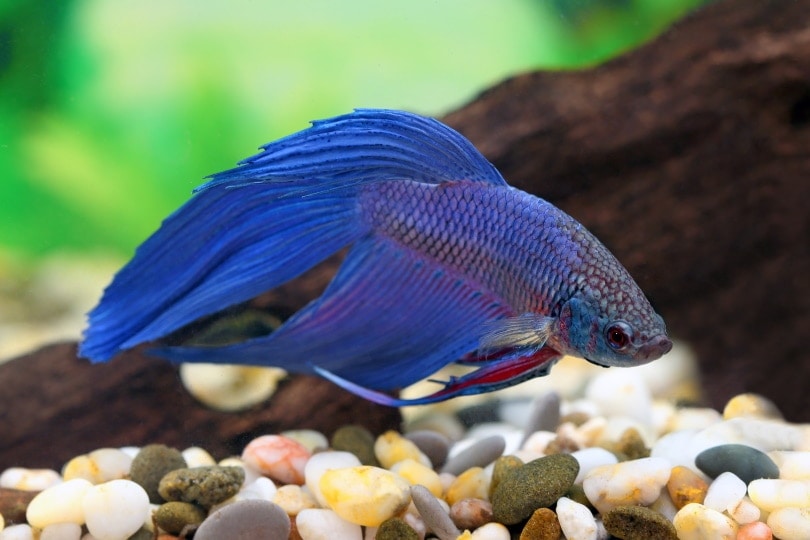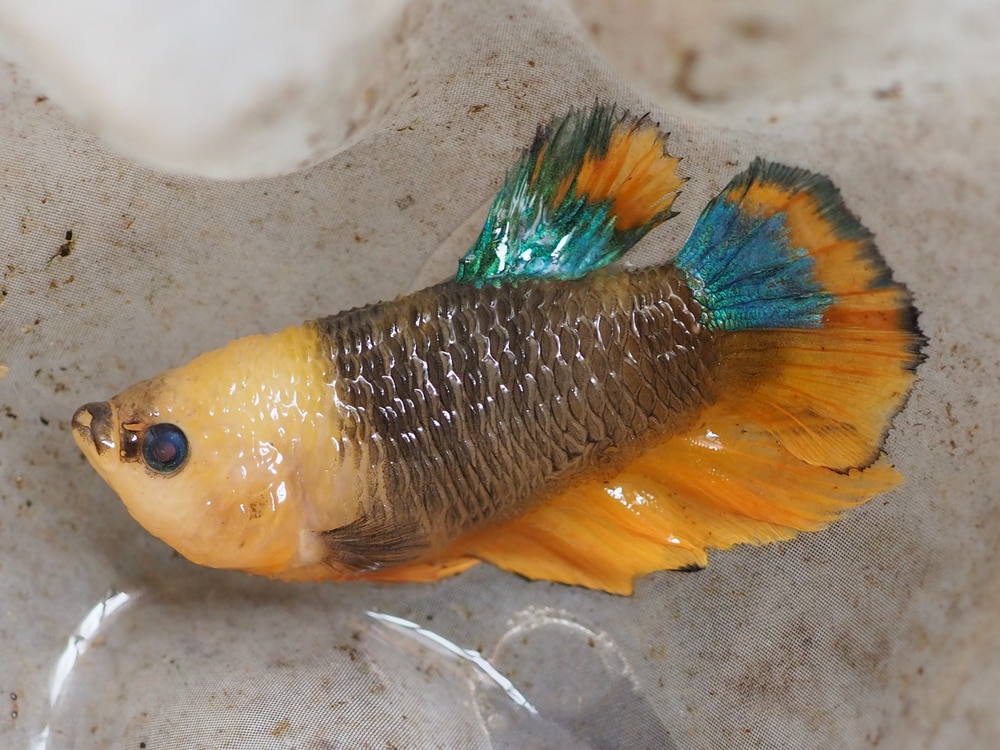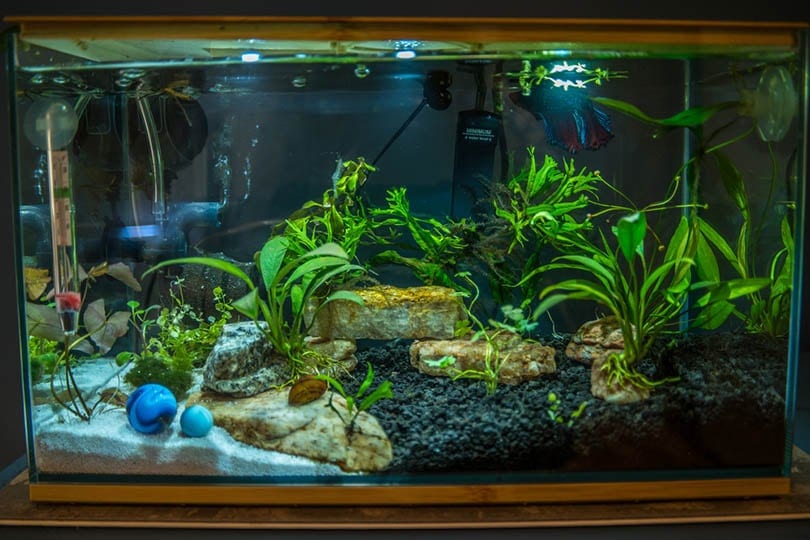How to Play with Your Betta Fish (9 Cool Ideas)

Updated on
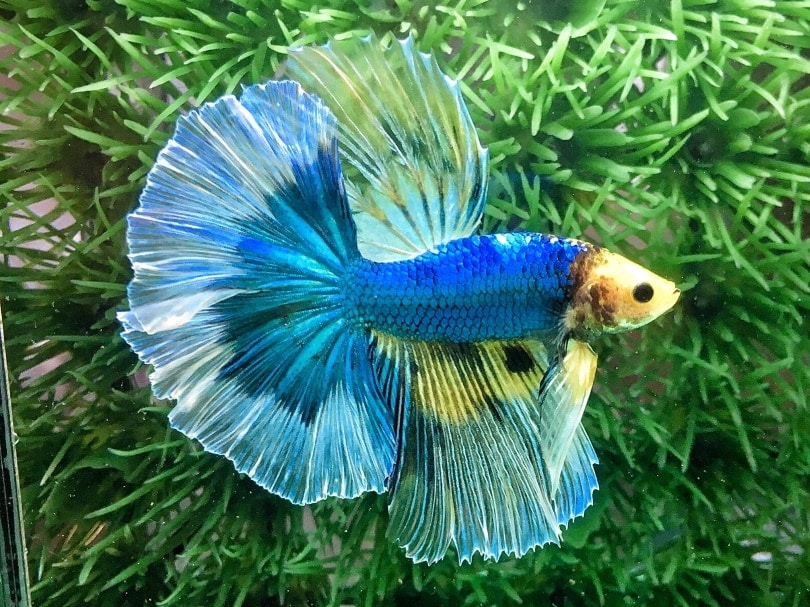
Do you ever look at your Betta fish swimming around its tank and wonder if its bored? The answer might surprise you! Betta fish are curious by nature, so they can get bored if kept in a static environment. Their boredom may not look the same way that it does in humans or other mammals, but boredom can lead to stress, which can increase the risk of illness or premature death. Finding creative ways to entertain your Betta fish and rotating through different toys and games can help enrich your Betta’s life, keeping them healthy and happy.
The 9 Cool Ideas for Playing with Your Betta
1. Introduce Plants
The addition of plants to your Betta’s tank can add a significant amount of enrichment and relaxation. Live plants are ideal, but you can use silk plants with no sharp edges if necessary. Bettas enjoy a densely planted tank with plenty of leaves to relax on and places to hide. Consider adding planted and floating plants to the tank to provide different textures, movements, and benefits.
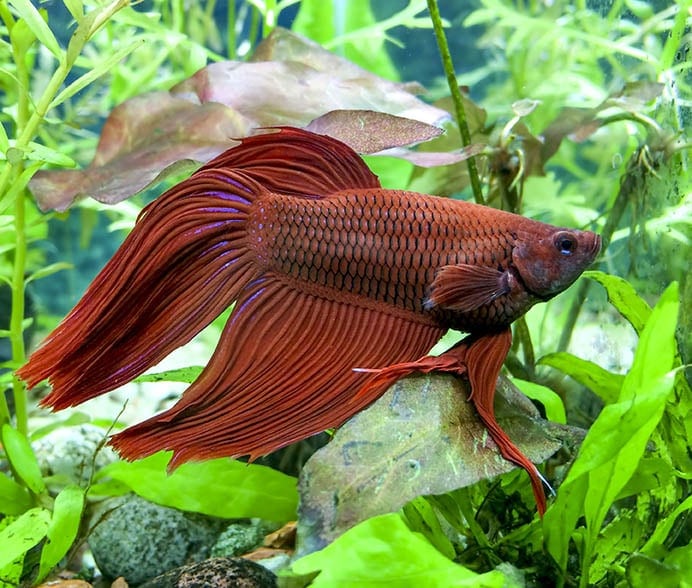
2. Rotate Décor
Don’t go out and buy a bunch of toys or décor for your Betta, dump them in the tank, and then leave them there forever. Rotating through décor and toys can keep things interesting for your Betta. Décor with hiding places and swim throughs are especially interesting to Bettas, so try changing pieces out and rotating new ones in every now and then to keep things interesting. Your Betta will know if something new has been introduced into the environment.
3. Try Floating Toys
Floating Betta logs are a commercially produced toy that many Bettas seem to enjoy lounging or hiding in. However, you’re not limited to only using floating items that are made specifically for Bettas. Clean ping-pong balls are a great option for a floating toy that will draw your Betta’s attention. You can even use airline tubing folded into shapes to give your Betta something to play with.
4. Teach Tricks
Betta fish are absolutely trainable! They are food driven and will happily learn tricks for food. You can teach them to swim or even jump through a hoop, swim to a specific part of the tank when they spot you or something specific, or even come to the surface or jump up to get a treat. Start slowly and small, using food to lure your Betta into specific areas, and then work your way up from there. Be patient and try using different foods and treats to keep things interesting.

- Related Read: How To Teach Your Betta Fish Tricks: Step By Step Guide
5. Offer Live Food
Bettas in the wild eat live insects and larvae, so why not offer that to your Betta to allow it to practice its hunting skills? You can purchase live food that has been specifically bred in a safe environment for consumption by fish. Your Betta will enjoy the occasional live bloodworm or blackworm. Live food shouldn’t account for your Betta’s entire diet, but it is a great treat option once or twice a week.
6. Provide a Hammock
You can purchase a commercial Betta hammock for your Betta fish to rest on, which your Betta will almost certainly use. They enjoy lounging on plant leaves, so offering broad-leafed plants in the tank, like Anubias, can also provide a more natural lounging experience to your Betta. Maybe offer a hammock toy for a while, then take it away and offer it again after a few weeks to keep things interesting.
7. Use a Mirror
The most important part about using a mirror to play with your Betta is to understand that long-term exposure to a mirror can lead to stress, so keep play sessions short. The general recommendation is 10–20 seconds or less. Allowing your Betta to see itself in a mirror will stimulate its natural desire to defend its territory. It will flare its gills and may become more active in the tank, swimming to and from the mirror. It’s a good idea to limit this game to only a few times a week.
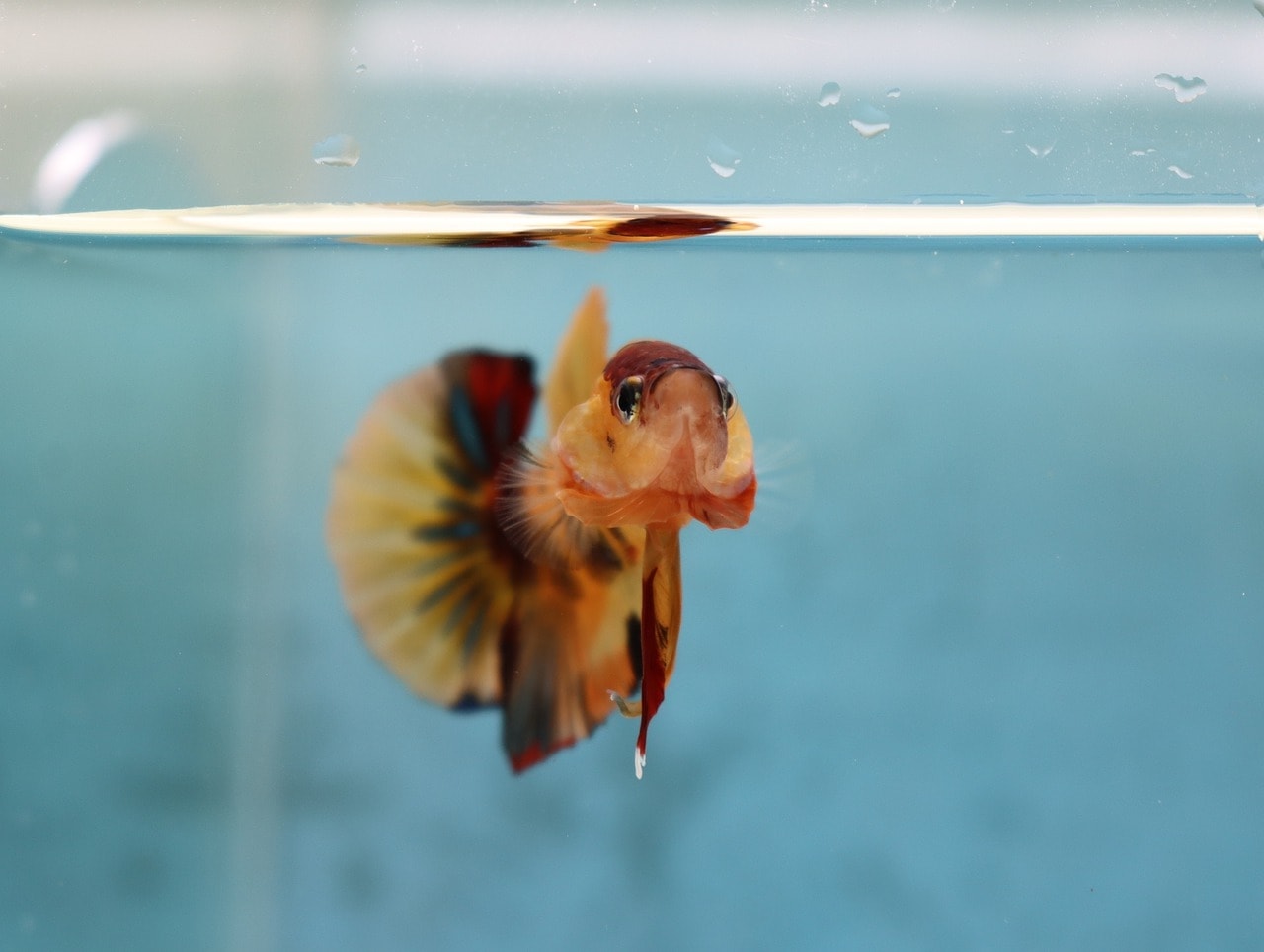
8. Watch Videos
Some people report their Betta fish seeming to respond to videos made for animals, like cats. It’s hard to say whether or not your Betta will actually watch or enjoy a video, but it won’t hurt to try. If you offer a video to your Betta and it seems to become stressed or begins flaring, then you can abandon the game.
9. Stimulate Hunting Behaviors
Promoting hunting behaviors in your Betta can create a more natural experience for your fish. Like offering live food, you can attempt to get your Betta to chase a laser pointer and drop food in as it chases the pointer, allowing it to feel like it hunted the food. This game may or may not work for some Bettas. Never shine the laser directly at your Betta and if the game seems to be causing stress, then avoid it in the future.
- Airline tubing
- Ping-pong balls
- Fishing bobbers (no line or hook attached)
- Floating logs
- Betta hammocks
- Plastic straws
- Caves and other tank structures
- Glass marbles
- Live and faux plants
- Feeding rings
- Moss balls
- Fish training kits
- Betta-safe food and treats
- Mirrors (see info above for safety)
- Laser pointers (see info above for safety)
In Conclusion
Be creative when it comes to finding the perfect toys and games for your Betta fish. You don’t have to go out and buy anything to keep your Betta fish entertained, oftentimes, you’ll have appropriate toys right in your own home. Make sure anything you add to your Betta’s tank is safe for your Betta. Any marbles, rocks, or décor should be inert and, when possible, specifically made for aquariums. Give your Betta time to adjust to any new toys or objects in its tank and don’t be discouraged if it doesn’t immediately seem to enjoy them. Avoid toys that seem to cause stress to your Betta, especially for prolonged periods.
Featured Image Credit: Rifkong, Shutterstock

